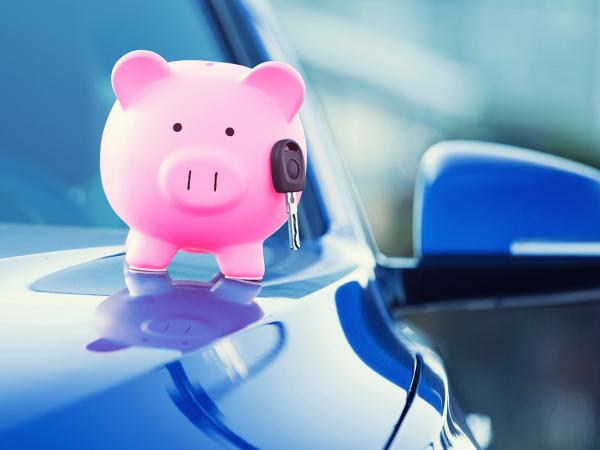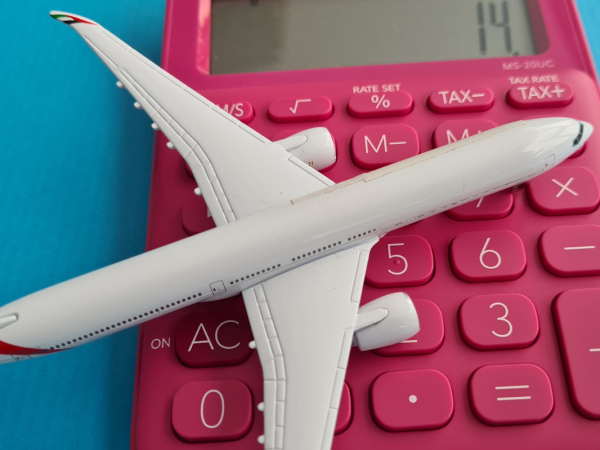Electric or petrol/diesel vehicles for business travel – tax relief
Employers do not have to pay employees for their business travel. However, some employers may reimburse you partly or fully for business mileage in either a company car or your own car. We explain how these different employer payments are treated for tax. If your employer does not reimburse your business mileage costs fully or at all, you may be able to claim tax relief from HMRC. We explain when you might be able to do this.
We include a look at electric vehicles, as more employers are offering these to their entire workforce via salary sacrifice schemes.

Reimbursement and tax relief for business travel
Because of the financial benefits available, employers might offer their entire workforce access to company cars via an electric vehicle salary sacrifice scheme. Employees may be using these company cars for business travel. However, they may also retain their own car, and occasionally use that for business travel too.
Your employer can reimburse you for business travel costs on a tax and National Insurance (NIC) free basis. The rate of reimbursement depends on whether it is a company car or your own car. If your employer does not reimburse your travel costs either at all or fully, you may be able to claim a deduction from your employment income, which might mean you pay less tax.
If your employer does not reimburse you for your business travel costs, you can only claim tax relief, you cannot claim any NIC relief.
We know there is some confusion due to all the possibilities, which can be summarised as follows:
Employer reimburses business travel expenses
The table shows the maximum rate the employer can reimburse on a tax and NIC free basis.
| Type of fuel | Company car | Your own car |
| Electric | Advisory fuel rate for fully electric cars | AMAP rates* |
| Petrol and hybrid petrol | Advisory fuel rates for petrol cars | AMAP rates* |
| Diesel and hybrid diesel | Advisory fuel rates for diesel cars | AMAP rates* |
* approved mileage allowance payment
Employer does not reimburse business travel expenses at all or fully
The table shows the maximum the employee can claim tax relief on. The employee must take into account any reimbursements from their employer.
| Type of fuel | Company car | Your own car |
| Electric | Actual costs of electricity | MAR** |
| Petrol or diesel | Actual costs of fuel | MAR** |
** mileage allowance relief
Here we tell you more about all the entries in the tables above. But before we do, it is worth reiterating what we mean by business travel.
Business Travel
There are strict rules that set out what travel expenses qualify for tax relief. If travel costs qualify for tax relief, you can usually claim a deduction for them, and they are known as allowable expenses. There is normally no tax relief available for the costs of ordinary commuting, that is, travel between your home and a permanent workplace.
The basic rules for travel costs
Travel expenses are only allowable for tax purposes if:
- you have to make the journey in the performance of the duties of your employment, or
- you make the journey to or from a place you have to attend in the performance of your duties, including trips from your workplace to another workplace or to visit a customer.
There is more information about business travel on our page Employment expenses: travel. This includes information about permanent and temporary workplaces, working from home, site-based working, and having no usual workplace.
What your employer can reimburse you on a tax and NIC-free basis
Company vehicles
If you use a company vehicle for business journeys (and your employer does not pay for your fuel), your employer can reimburse you on a tax and NIC-free basis for any business mileage you do in it according to the advisory fuel rates. These rates can be found on GOV.UK. Being able to give you the money gross, that is without any tax or NIC deductions, means you get the relief given to you there and then.
Electric vehicle salary sacrifice schemes usually result in you having a company car (essentially this is a vehicle the employer owns or leases but is provided to you), although you should check this with your employer.
Your own vehicle
If you use your own vehicle for business journeys (a car that you own or lease in your own name), there is a system of approved mileage allowances. You can find these rates on GOV.UK. This sets out the maximum amount that your employer can reimburse you per mile on a tax and NIC-free basis. It is known as the approved mileage allowance payment (AMAP).
The advisory fuel rates are significantly lower than the AMAP rates, for instance 8p per mile for a fully electric car instead of 45p per mile. This is because the AMAP rates cover the costs of running and maintaining the vehicle, such as fuel, oil, servicing, repairs, insurance, vehicle excise duty and MOT. The rates are also intended to cover the loss in value (often called depreciation) of the vehicle. The advisory fuel rates cover fuel only, perhaps on the basis that where an employer provides a company car, they will also pay some or all of the other costs.
There is no obligation on employers to reimburse their employees for travel costs, although many will provide either full or partial reimbursement.
When you can claim tax relief
You can claim tax relief in respect of your allowable travel expenses if:
- your employer does not pay for your travel costs, or
- your employer does not reimburse you in full for travel costs that you pay yourself, and
- you are a taxpayer.
Note that if your employer reimburses your travel expenses in full, you cannot get tax relief, because you have not personally incurred any expense.
If your employer only reimburses your allowable travel expenses in part, you may be able to claim tax relief to the extent that you are not reimbursed.
What tax relief you get
If you need to make a claim to HMRC for tax relief on your travel costs, this is how it works:
- You deduct the amount of your mileage allowance relief claim or your actual travel costs (see below) from your gross employment income.
- This reduces the amount of income on which you pay tax and reduces the amount of tax you have to pay.
- You get tax relief according to the rate at which you pay tax. So, if your mileage claim or travel costs are £100, and you pay tax at 20%, you get tax relief of £20.
If you use your own car or van to make business journeys, there is a statutory system of tax-free approved mileage allowances. This is called mileage allowance relief (MAR). The rates, which are actually the same as the AMAP rates, apply to all cars and vans, whatever their fuel type, including hybrid and electric vehicles.
If you use a company car or van, you would generally claim the actual cost of the fuel used for business journeys. You cannot use AMAP or advisory fuel rates.
You need to keep a record of your business miles, your actual costs (where relevant) and any mileage allowance payments that your employer makes to you.
I have a company car but use my own car for business travel
We have come across taxpayers who have a company car, which is often a salary sacrifice electric vehicle, but who tend to use their own car for business travel. There is sometimes confusion over what mileage rates the employer should reimburse an employee in these circumstances. There can also be a question over what additional tax relief, if any, an employee might claim from HMRC.
As stated above, an employer is under no obligation to provide any reimbursement for mileage costs at all. If they have provided the employee with a company car, they may have an expectation that the employee will use it for business travel and they are likely to offer reimbursement at the advisory fuel rates only.
Therefore, if you have a company car, but choose to use your own car for business travel, you might not get much, if anything, from your employer towards your mileage costs. But you can claim tax relief from HMRC up to the maximum allowed under the AMAP rates. If your employer reimburses you according to the advisory fuel rates, this counts as partial reimbursement under the AMAP system. So you would have to take the amount reimbursed by your employer into account when working out your tax relief claim.
How to claim tax relief on travel costs
You use form P87 to claim a tax refund on employment expenses, including travel costs or mileage claims.
There is more information about how to claim a tax refund on our page PAYE tax refunds.
There is an example of how to complete the form on our page Form P87: tax relief for employment expenses.
More information
You can find more information about tax relief on the costs of using your own car for business travel on our page Employment expenses: using your own car.
You can find information on benefit in kind charges for company cars, including electric cars in our guidance.
There are other benefit in kind issues related to electric cars. You can read more about the rules in different scenarios in HMRC’s technical manual.



